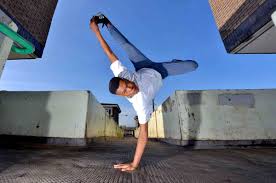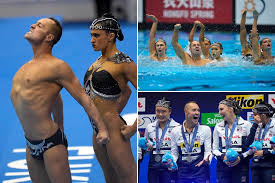Exactly 100 years since the Olympics were last staged in Paris, and 128 years since its modern revival in Athens, the Summer Games can still deliver fresh looks for its 33rd edition. Let’s take a look at the innovations the Paris Olympics will showcase:
Opening Ceremony: A River Parade
The Paris Olympics will open with a historic first for any Summer Games. Thousands of athletes will sail westward along the River Seine at sunset toward the Eiffel Tower on Friday, July 26. This ambitious idea aims to bring the spectacle out of an expensively ticketed stadium and into the city where many more people can enjoy it.
A crowd of 320,000 people is expected along the 6-kilometre (3.7-mile) route from Pont d’Austerlitz to Pont d’Iéna. Tickets will be free for about 220,000 invited and security-screened spectators watching from the upper river bank. About 100,000 paying spectators, including those with lavish hospitality packages, will watch from the lower riverside and around the Trocadéro plaza, where the parade will end with a view of the Eiffel Tower.
This is the most audacious plan for a main Olympics ceremony, and it brings significant security challenges. The original plan allowed for 600,000 spectators but had to be scaled down to ensure better security. French President Emmanuel Macron has acknowledged the river-borne parade could be moved if there are any security threats. The closing ceremony on August 11 is scheduled in the Stade de France national arena.
Gender Parity: A First for the Olympics
Paris is where women first competed at the Olympics in 1900, with 22 of the 997 athletes in competition. Women participated in tennis and golf, and as part of team events in sailing, croquet, and equestrianism. Charlotte Cooper of Britain became the first female individual gold medalist by winning the tennis singles event.
For the first time, women will have an equal share with men of an entry quota, now set at 10,500 athletes across 329 events. “This is our contribution to a more gender-equal world,” said IOC president Thomas Bach.
The proportion of female athletes has grown from 2.2% in 1900 to 23% at the 1984 Games in Los Angeles, where American Joan Benoit won the first women’s Olympic marathon. As the number of female athletes approached 50%, the IOC pressured traditionally all-male Olympic teams to include women. Saudi Arabia, Qatar, and Brunei included female athletes for the first time at London in 2012.
The Tokyo Olympics in 2021 saw a 48% participation rate for women, with teams encouraged to select a man and a woman each to be flagbearers at the opening ceremony. However, a female president for the IOC remains a future goal. The next presidential election is in March 2025, and the Olympic body has only had one female candidate so far.
Prize Money: A New Tradition
In Paris, gold medalists in track and field will receive prize money directly from Olympic revenues, a controversial break with tradition. World Athletics announced in April that each of the 48 gold medals in track and field would carry a $50,000 prize. For the Los Angeles 2028 Games, World Athletics also wants to pay prize money for silver and bronze medals.
France will pay its gold medalists around $85,000 each, while the US Olympic and Paralympic Committee’s “Project Gold” offers $37,500 for gold, $22,500 for silver, and $15,000 for bronze. However, the $2.4 million pledge by World Athletics president Sebastian Coe will come directly from the sport’s share of the IOC’s multi-billion dollar income from broadcasting and sponsor deals. The IOC prefers governing bodies spend their Olympic revenues on development projects, but World Athletics is one of the few with money to spare for elite athletes.
Breaking Through: Breakdance Debut
Breakdance, officially known as breaking, will make its Olympic debut in Paris. Breaking’s 50-year journey from the Bronx will culminate at the Place de la Concorde, where 16 b-boys and 16 b-girls will compete on August 9-10.
The sport’s inclusion follows the trend of integrating urban and innovative sports into the Olympics. However, breaking might be a one-time event, as it has been dropped for the Los Angeles 2028 Games in favour of cricket, flag football, lacrosse, and squash. Brisbane’s plans for the 2032 Games are still uncertain regarding breaking’s inclusion.
Surf’s Up: Tahiti Adventure
Surfing will bring a unique postcard image to the Paris Olympics, taking place by a beach in Tahiti. Staging an event so far from the host city is not unprecedented but is unique in its concurrent timing.
In 1956, equestrian events were held in Stockholm, Sweden, due to Australia’s horse quarantine rules, five months before the Melbourne opening ceremony. Despite the IOC’s preference for mainland options like Biarritz, Paris organizers insisted on French Polynesia for surfing. The main controversy revolves around building a tower for the judges that could damage the coral reef.
Paris 2024 promises to deliver an exciting mix of tradition and innovation, setting new standards for the future of the Olympic Games.




